Year 9 Options 2023
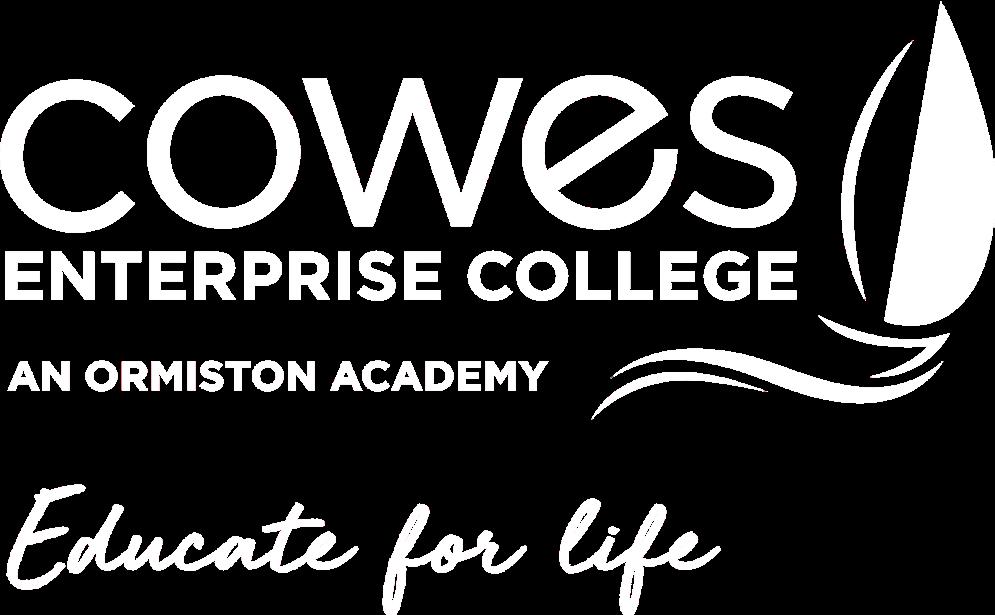

At Cowes, we are passionate about ensuring you are able to choose from a wide range of courses to offer you as much flexibility as possible. Your learning pathway needs to be personal to you, so don’t be influenced by the choices made by your friends – your life is your own and we are all so very different.
You know the subjects you thoroughly enjoy and those where you are most successful. You may even have an idea about your future career. Speak to your family and the staff who know you best to help you decide what’s best for you.
You will get it right and we will give you as much support as you need to choose, in order that you excel in the right subjects.
Here are some tips:
• Choose subjects that you will enjoy
• Choose subjects that you are good at
• Choose subjects that will support your career plans
• Choose a combination of subjects that give you a broad experience of learning
Remember:
• Do not choose subjects because you want to be with your friends
• Do not choose subjects because you like the teacher
Here is a plan to follow:
1. Read the options booklet and talk to teachers to find out as much as you can about the different subjects you can choose.
2. Discuss your plans with your parents, your form tutor and your subject teachers.
3. Make your choices, with your parent, by filling in the options choices form online via a link that will be sent by email on Monday 6th March 2023.
4. Ensure that your form is submitted by the deadline on Wednesday 15th March 2023.
Be excited and proud to know that you are at such a critical stage of your education and know that we will give you all the help you need to make the right decisions.
Introduction
This booklet aims to guide year 9 students and their parents through the process of choosing their option subjects for key stage 4.
Key Dates
Wednesday 22nd February 2022
• Options assembly
• Option book available
• Information videos for each subject will be available
Monday 6th March 2023
• Through discussions with staff and parents, students begin to finalise their option choices
• Link for the options choices form will be made available to parents
Wednesday 1st March 2023
• Optional drop-in session for parents and students to discuss any questions face-toface with a member of the Senior Leadership Team, from 5:30-7pm
Wednesday 15th March 2023
• Hand-in date – deadline for options choices to be submitted online
May 2023
• Confirmation – following final checks on student numbers, students will have their choices confirmed for year 10
Please note if you require a paper copy of this booklet, please email vlewis@cowesec.org
KS4 Curriculum
All students will follow the same core subjects which, with your chosen humanities option, will give you a strong foundation for further study and future employment.
The core curriculum comprises of:
• English (language and literature) 2 x GCSE
• Mathematics GCSE
• Science (combined) 2 x GCSE - unless you select triple science as an option
• MFL GCSE – either French or Spanish, chosen in year 7
• E1M
• Games
In addition to this you will choose Geography or History and two additional options. To make the timetable work, we have to put these subjects into blocks. You will be asked to pick one subject from each of the blocks below. Each subject must be different.
Block 1
History
Geography
Block 2
Triple Science
*Art and Design – Fine Art
*Art and Design - Graphics
Design Technology
GCSE Physical Education
Drama
ICT
GCSE Business
Food Preparation and Nutrition
Block 3
Triple Science
*Art and Design – Fine Art
*Art and Design - Textiles
Design Technology
GCSE Physical Education
Computer Science
Film Studies
GCSE Business
Health and Social Care
GCSE Religious Studies
GCSE Music
*You can only choose Art and Design in one block as they are all the same GCSE.
GCSE English Literature and Language
Exam Board: Edexcel
Course Content
Are you the next J.K Rowling or Suzanne Collins? The stories we study in English delve into the depths of human experience and ask questions such as: What motivates us? What touches us? What inspires us? In English literature and English language, students will study a wide range of inspirational texts including poetry, prose, non-fiction and drama from the 19th century to the present day. Students will also be encouraged to explore and extend their imaginative and analytical skills through creative writing.
Assessment Procedure
All assessment in English is 100% final exam.
English Literature:
Paper 1: Shakespeare and a modern text; either a novel or play (50%)
Paper 2: A Christmas Carol and Conflict Poetry (50%)
English Language:
Paper 1: 19th Century Unseen Fiction and Imaginative Writing (40%)
Paper 2: 20th and 21st Century Unseen Non-Fiction and Transactional Writing (60%)
Non- Assessed: Spoken Language
Opportunities at CEC and beyond...
Students will be entered for both English Language and English literature and receive two separate qualifications at the end of year 11, the higher mark of which will contribute to the English and Maths requirement for A Levels, apprenticeships and other pathways for higher education. The continuous focus on reading for meaning and the challenge of becoming a strong writer are excellent preparation not only for English at A Level, but also for philosophy, history, psychology, religious studies and a range of other subjects, as well as a chance to improve communication skills for success in the work force.
GCSE Mathematics
Exam Board: AQA
Course Content
The programme of study for KS4 is organised into distinct topics under the broad headings of number, algebra, geometry and measures, probability, statistics and ratio, proportion and rates of change. Students will develop and consolidate connections across these mathematical topics and will develop skills to reason and problem solve, drawing on a range of knowledge and ideas.
Assessment Procedure
GCSE Mathematics is assessed over three exam papers. Paper one is specifically a noncalculator paper but papers 2 and 3 require a scientific calculator (Casio models are recommended) and it is essential that students have one so they can access the curriculum at home and in lessons.
Students will be entered for the AQA 8300 specification and will sit the exams at either foundation or higher level. The final decision on level of entry for exams will be decided when students reach year 11.
Opportunities at CEC and beyond...
After sitting the GCSE exam students who achieve Grade 7 or above may move on to study A Level mathematics or equivalent or use the qualification to support other subjects such as the sciences, psychology, sociology, geography and economics.
Students who do not achieve a grade 4 will continue to study GCSE or equivalent until they reach 18.
GCSE Combined Science
Exam Board: OCR Course Content
Students study a wide breadth of science which includes aspects of biology, physics and chemistry.
We follow the OCR Gateway A specification and over two years will complete the GCSE combined science qualification.
Assessment Procedure
Students complete two 1 hour 10-minute papers in each Science subject, totaling 6 papers, 16.7% per paper.
There is no coursework in the new combined GCSE; however, the course requires a minimum completion of 16 set practical tasks that will be questioned on in the exam. Students will also be asked to complete multiple-choice questions.
Opportunities at CEC and beyond...
Numeracy development is now a major component of the new science course.
Grades of 6/5 in combined science can allow you access to most A Level courses. This course can lead to university courses such as medicine, sciences, archaeology, and pharmacology etc.
Jobs include research scientists, doctor, nursing, ecologist, or work in the Forces.
GCSE Combined Science

GCSE Computer Science
Exam Board: AQA
Course Content
Computer science is of enormous importance to the economy, and the role of computer science as a discipline in itself and as an underpinning subject across science and engineering is growing rapidly.
You will learn about a range of digital and computing aspects:
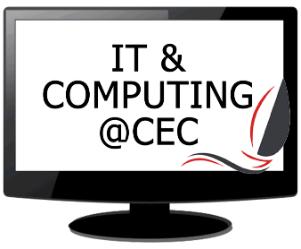
o Systems architecture
o Memory and storage
o Computer networks, connections, and protocols
o Network security
o Systems software
o Ethical legal, cultural, and environmental impacts of digital technology
o Algorithms
o Programming fundamentals
o Producing robust programs
o Boolean logic
o Programming languages and Integrated Development Environments
Assessment Procedure
There are two written exams:
Exam 1 – Computer systems
Exam 2 – Computational thinking, algorithms and programming
Opportunities at CEC and beyond...
Students opting for a GCSE in computer science will develop the skills needed to create applications to run on mobile devices, create simple computer games and gain an understanding of the fundamental concepts around creating software applications. Students will have the opportunity to work individually and to collaborate as part of a group to solve a problem together.
This course can lead to most A Level courses including A Level computer science.
GCSE Business
Exam Board: Edexcel
Course Content
Theme 1: Investigating a small business
Theme 1 concentrates on the key business concepts, issues and skills involved in starting and running a small business. It provides a framework for students to explore core concepts through the lens of an entrepreneur setting up a business.
Theme 2: Building a business
Theme 2 examines how a business develops beyond the start-up phase. It focuses on the key business concepts, issues and decisions used to grow a business, with an emphasis on aspects of marketing, operations, finance and human resources. It also considers the impact of the wider world on the decisions a business makes as it grows.
Assessment Procedure
Each theme has their own examination paper and the two papers count 50% towards your overall grade. 90 marks are available in each paper.
Each paper is divided into three sections:
Section A: 35 marks
Section B: 30 marks
Section C: 25 marks.
Both papers will consist of calculations, multiple–choice, short–answer and extended–writing questions.
Questions in Sections B and C will be based on business contexts given in the paper.
Opportunities at CEC and beyond...
The course covers all aspects of business and with further training you may wish to specialise and study a professional qualification in your chosen area such as marketing, retail or customer service.
You could take this course in preparation for level 3 courses, for example, A Level qualifications in Business or Economics. This can lead to both university and work.
GCSE Art & Design
(only one Art and Design course can be selected in total)
Exam Board: AQA
Course Content
There are three Art & Design options to choose from: Fine Art, Graphics and Textiles. This gives you the option to specialise in the area of Art & Design you prefer. Whichever specialism you choose this course allows you to develop your creativity and confidence by experimenting with a wide range of techniques. The course focuses mainly on practical skills and over time allows you to be more independent and make your own decisions.
Assessment Procedure
Component 1: Portfolio (coursework) 60%
• At least three projects over year 10 and year 11 (10 weeks per project approximately)
• All classwork and homework count towards this component
• You must show a range of practical skills, techniques and artist research
• All work is teacher assessed
Component 2: Exam project (ESA) 40%
• Choice of themes set by the exam board (AQA)
• Develop your own theme/ project in class (approximately 10 weeks)
• Final piece made under exam conditions
• Whole project assessed by your teacher
Opportunities at CEC and beyond...
Art & Design GCSE will open the door to lots of pathways such as Art & Design A-Level, and then the huge range of ART or DESIGN related Degree Courses at university such as: Architecture, Fashion, Photography, Animation, Textiles, Interior Design, Graphics, etc. The Creative Industries offer a wide range of careers that could start with an Art & Design GCSE.
GCSE Fine Art
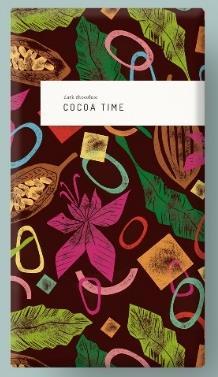
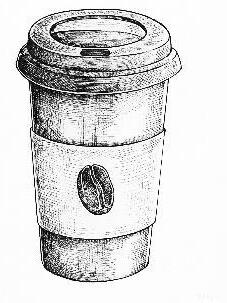
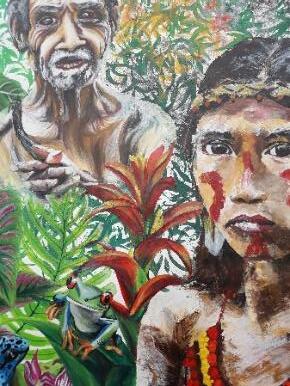


GCSE Textiles
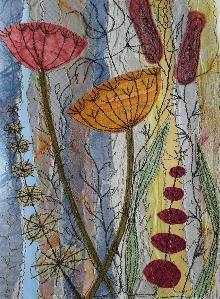
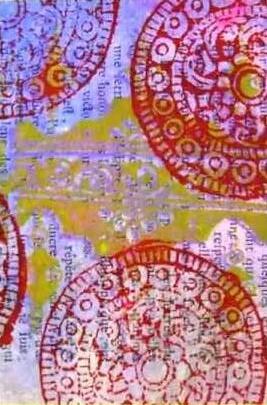


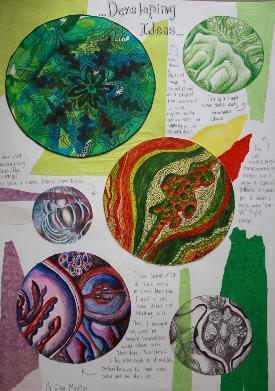

GCSE Graphics




GCSE Design Technology
Exam Board: Edexcel
Course Content
Are you a creative, practical person? Do you like designing and making things from woods, metals or plastics? Do you like solving problems? GCSE Design and Technology enables students to design and make products with creativity and originality using a range of materials and techniques.


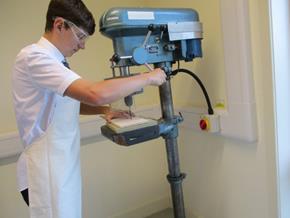
You will study the following: designing and making small, complex items out of a combination of materials such as woods, metals, plastics, card, paper and fabric, with the opportunity to look at electronics along with systems and control.
You will cover core content and we also cover timber as a focused material. You will learn and develop a range of practical skills in the workshop using hand tools and powered equipment along with using our CAD and CAM machines. You will build your skills by working within a range of design contexts and developing design briefs, specifications and then designing and making products to meet a client’s needs and requirements.
Assessment Procedure
• External exam - worth 50% – Written exam – looking at core principles, specialist technical principles and timbers as a material group along with design and making. The written exam is 1 hour and 45 minutes.
• Non-exam assessment (NEA) - worth 50% – This is a design and make portfolio and the final product is worth 50% of the GCSE. The portfolio is started in June of Year 10 and is completed by February half term of Year 11.
Opportunities at CEC and beyond...
After A Level Product Design, further study can lead to vocational or degree programmes such as architecture, product design or engineering, apprenticeships and further education training leading to jobs in fields such as:
Engineering, mechanics, yacht and boat building, carpentry, joinery, construction, electrician, furniture crafts, kitchen fitter, plumber, manufacturing, welding and the world of design.
GCSE Drama
Exam Board: AQA
Course Content
GCSE drama is an exciting course that provides the opportunity for students to develop their practical skills and their understanding and appreciation of drama and theatre. Drama also offers development in a wide range of transferable skills that will support all other subjects. Some of these skills include confidence building, communication, reasoning, teamwork, self- discipline, time management and creativity. We follow the AQA specification.
Assessment Procedure
Devising drama. Non-exam assessment. 30%
Learners will research and explore a stimulus, work collaboratively and create their own devised drama
Presenting and performing texts. Non-exam assessment (visiting examination). 30% Learners develop and apply theatrical skills in acting or design by presenting a showcase of two extracts from a performance text
Drama: Performance and response. Exam assessment, written paper. 40% Learners will explore practically a performance text to demonstrate their knowledge and understanding of drama. Learners will analyse and evaluate live theatre performance
Opportunities at CEC and beyond...
Access to performance or directing roles on whole college productions. This course can lead to A Level and STEC courses in drama, theatre studies, performing arts and particularly supports English (literature or language) and history. Jobs in this industry include acting, teaching, public relations, research posts etc. Industry employers cite the skills gained through studying drama as particularly valuable and attractive.
GCSE French and Spanish
Exam Board: AQA
Course Content
AQA French and Spanish students study three themes, each divided into a number of topics.
Theme 1: Identity and culture
Topic 1: Me, my family and friends; Topic 2: Technology in everyday life; Topic 3: Free-time activities; Topic 4: Customs and festivals in French/Spanish speaking countries/communities

Theme 2: Local, national, international and global areas of interest
Topic 1: Home, town, neighborhood and region; Topic 2: Social Issues such as charity/voluntary work; Topic 3: Global Issues such as the environment, poverty and homelessness; Topic 4: Travel and Tourism
Theme 3: Current and future study and employment
Topic 1: My studies; Topic 2: Life at school/college; Topic 3: Education post 16; Topic 4: Jobs, career choices and ambitions
Assessment Procedure
Students sit all of their exams at the end of the course. There is a foundation tier (grades 1-5) and a higher tier (grades 4-9). Students must take all four papers at the same tier. Students are assessed in four skills: listening, speaking, reading and writing and each is worth 25% of the overall GCSE grade.
Opportunities at CEC and beyond...
People that speak other languages are very popular with employers and they can work in almost any job where contact with people from other countries might be necessary.
Learning a language is also about discovering other countries, cultures and opening windows to an increasingly globalised world. Many universities and colleges look for a GCSE language qualification when processing applications.
GCSE Film Studies
Exam Board: WJEC
Course Content
GCSE Film Studies is an exciting course that provides the opportunity for students to develop their practical skills and their understanding and appreciation of film and media. Preproduction and production skills are fully integrated into non-examined assessment and the written exams.
GCSE Film Studies explores four key concepts that form the basis of the subject content:
• Cinematography
• Mise en Scene
• Editing
• Sound
Assessment Procedure
Component 1: Key developments in US film. Written examination: 35% of qualification.
Component 2: Global film: narrative, representation and film style. Written examination: 35% of qualification.
Component 3: Production non-exam assessment 30% of qualification.
Opportunities at CEC and beyond...
Develop a range of film skills including using Macs, editing video and sound, researching, and print layout and editing.
A level 2 qualification will allow you access to most level 3 qualifications. This course can lead to further courses in subjects such as A Level film studies, English and BTEC media studies.
Jobs in this industry include designer, technician, etc.
GCSE Food Preparation and Nutrition
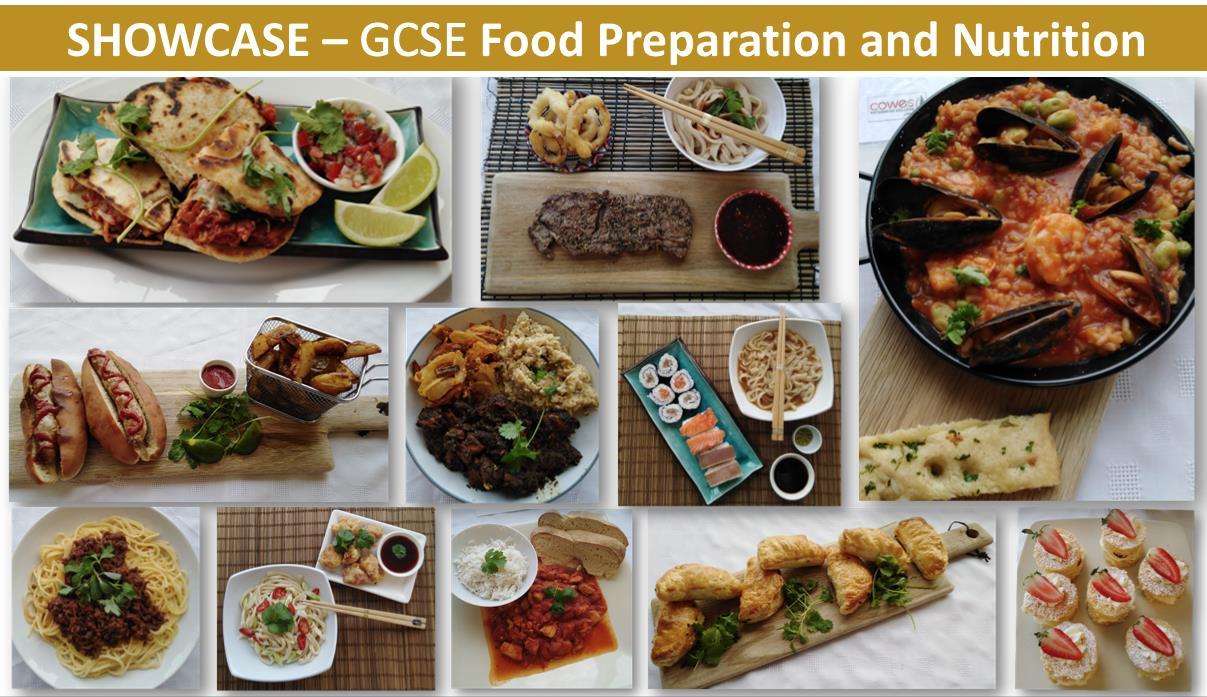
Exam Board: AQA
Course Content
Are you a creative, practical person? Do you enjoy carrying out practical tasks in the kitchen? This course will support you to learn nutrition and the working properties of foods; so why we must have eggs in cakes, right through to how each food group behaves within your body. We teach you specific techniques to produce some wonderful food you can go on to cook for enjoyment or work within the industry.
Throughout the course you will back up the theory knowledge by creating foods illustrating the functions and nutritional properties of the ingredients as well as the health considerations.
You will cover the following over the two-year course: nutritional functions and properties of foods, working properties of foods and alternatives, scientific experiments to illustrate these in action and regular practical tasks building on your knowledge and skills within the kitchen. You will also complete your Level 2 Food Hygiene course which is recognised in industry.
Assessment Procedure
External exam
Written exam – this will assess knowledge of nutrition and working properties of foods, worth 50% of the GCSE. This is 1 hour and 45 minutes.
Non-exam assessment
Task 1: Food investigation looking at specific properties and functions of ingredients, worth 15% of the GCSE.
Task 2: Food preparation task where practical skills are assessed, worth 35% of the GCSE. This task includes multiple opportunities to showcase your technical and showcase ability to cook.
Opportunities at CEC and beyond...
The food industry is the biggest employer in the UK, from head chefs right through to food developers. Food is very on trend with many TV shows covering many aspects of food, whether it be preparation, sourcing or healthy eating. We all want to know what we are eating, why we are eating it and its benefits to us, as well as considering cost, seasonality and the best foods to choose from.
There are many opportunities to study further after GCSE. These qualifications could be A Level or a National Diploma in food preparation and on to degree level at many universities within the UK. Some will go on to apprenticeships or careers in the maritime industry in hospitality. CEC is well equipped with an industry style kitchen which gives you the experience and knowledge of a working catering kitchen, standing you in good stead for the future.
GCSE Geography
Exam Board: Edexcel
Course Content
The course is made up of three units. Paper 1 and 2 are worth 37.5% each, Paper 3 is worth 25%. The topics we study give students the opportunity to study a range of named examples in the UK and on a global scale and build on their skills and knowledge from KS3. In addition, fieldwork and research is integral to Paper 2. The topics studied over the two years are a mixture of human and physical geography and make use of a range of contemporary examples to support students learning.
Assessment Procedure
We study EdExcel Specification B.
Paper 1: Global geographical issues (1 hour 30 minutes external exam) includes topics such as hazardous earth (earthquakes, volcanoes, tsunamis and tropical storms), development dynamics and challenges of an urbanising world. Each topic includes a range of named examples to develop your knowledge and to apply your understanding.
Paper 2: UK geographical issues (1 hour 30 minutes external exam) focuses on UK evolving physical landscapes such as UK river environments and coastlines. Also, UK human landscapes are studied, including both urban environments and rural environments from London to Cornwall. It will require students to complete fieldwork investigations into coastal environments and a dynamic UK city (Southampton) in order to improve their geographical skills and their knowledge of local areas.
Paper 3: People and environment issues - making geographical decisions (1 hour 30 minutes external exam) is where students will use geographical skills and resources to justify their decision regarding a chosen topical issue in a chosen area from around the world. Topical issues will focus around these areas of study: people and the biosphere, forests under threat and consuming energy resources. This exam has included such topical issues such as palm oil exploitation in Indonesia, renewable energy in Norway and tar sands extraction in Canada.
Opportunities at CEC and beyond...
This course can lead to further courses in subjects such as geography A Level, sociology, biology or travel and tourism. A GCSE in geography is excellent preparation for a career in planning, resource and countryside management, tourism and recreation and environmental management and development.
GCSE History
Exam Board: AQA
Course Content
Our GCSE course follows the AQA exam board. The history specification allows students to study a wide breadth and depth of history. Our course will cover the development of Germany between 1890 and 1945 and the international Cold War struggle which followed from 1945 to 1972. Students will also be able to study the story and development of medicine and health in Britain over the last 1000 years and an in-depth study of Elizabethan England in the 16th century.

Assessment Procedure
The History GCSE will be assessed entirely by written examination.
Paper 1: understanding the modern world. Covering 'Germany 1890-1945' and 'conflict and tension between East and West, 1945-1972'. Paper 1 is worth 50% of the qualification
Paper 2: Shaping the nation. Covering 'Britain: health and the people: c1000 to the present day' and 'Elizabethan England, c1568-1603'. Paper 2 is worth 50% of the qualification and includes a study of the historic environment
Opportunities at CEC and beyond...
A GCSE in history is well regarded by further and higher education establishments and by employers as a rigorous and academically challenging qualification.
GCSE history can lead to further study at A Level, but which also complements a wide range of other subjects. A qualification in history can open career paths in business, the media and law, as well as politics, research and the heritage sector.
The department runs a residential visit to Germany to support the teaching of the course.
GCSE Music
Exam Board: AQA
Course Content
GCSE Music is about performing, composing and listening to music. You will study a wide range of music including classical, popular and world music. You can perform and create music on any instrument and in any style you like. You can also choose to use music technology (such as sequencers, samplers, synthesizers, multi-track recording and DJ gear) to create and perform music.
Assessment Procedure Performance (30%)
You will perform two pieces on any instrument and style you like. Your performances are assessed in college, but moderated by the exam board.
Composition (30%)
You will develop musical ideas in the form of two compositions or arrangements. Your compositions are assessed in college, but moderated by the exam board.

Listening and Appraising (40%)
This is a written exam lasting 1 hour 30 minutes, to take place in the summer term at the end of the course. This paper is externally marked.
Opportunities at CEC and beyond...
Numerous performing, recording and self-promotionopportunities.

GCSE music is a good preparation for further musical study such as A Level music and A Level music technology.
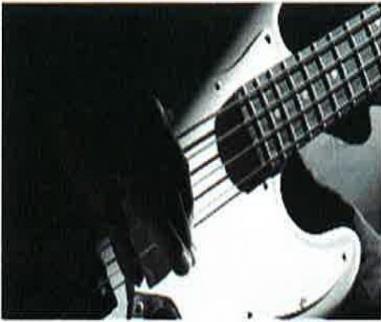
You may wish to go into a job where it is useful to have had experience of music. These might include careers in teaching, the music industry, publishing, entertainment and communication.

GCSE Physical Education
Exam Board: Edexcel
Course Content
The GCSE in Physical Education requires students to develop their knowledge and understanding of physical education and physical activity. The content studied is aimed at developing the learner’s knowledge and understanding of how a healthy, active lifestyle contributes to the growth and development of body systems and structures (including the cardiovascular, muscular, respiratory and skeletal systems), as well as general wellbeing. Alongside this, students will also gain the opportunity to develop their knowledge and understanding of practical performance in in physical activity.
Throughout the course students are given the opportunity to develop their practical and analytical skills relating to their own and others performance in physical activity. Students opting for the PE GCSE should be taking part in at least one competitive sport to a high standard. It is also important to be aware that this course is 60% theory and exam work.
Assessment Procedure
Component 1 assesses the knowledge of fitness and body systems through a 1hr 45min examination worth 36% of the overall grade.
Component 2 assesses the knowledge of health and performance through a 1hr 15min examination worth 24% of the overall grade. The written exams combined are worth 60% of the total grade.
Component 3, the first part of the coursework element, assesses practical performance in three sports (one team sport, one individual sport and a third optional sport). This is worth 30% of the overall grade.
Component 4, the second part of the coursework element, includes the writing, completion and reviewing of a personal exercise programme. This is worth 10% of the overall grade. The two-coursework elements combined are worth 40% of the total grade.
Opportunities at CEC and beyond...
Physical Education develops the physical and academic skills required for careers and educational courses that are in the sports coaching, fitness and development areas. Students develop generic skills that allow them to build confidence and analyse performance to help create solutions. Higher education possibilities include AS/A2 Physical Education.
GCSE Triple Science
Exam Board: OCR
Course Content
Students study biology, physics and chemistry separately.
We follow the OCR GCSE Gateway A specification and over two years will complete the GCSE biology, GCSE chemistry, and GCSE physics qualifications.
Assessment Procedure
Students complete two 1 hour 45-minute papers in each science subject. 50% per paper
There is no coursework in the new triple GCSE; however, the course requires a minimum completion of 8 set practical tasks per subject that will be questioned on in the exam Students will also be asked to complete multiple-choice questions
Opportunities at CEC and beyond...
Leadership opportunities to mentor and/or support younger students.
Grades of 6/6/5 in triple science can allow you access to most A Level courses and this course gives a good grounding for A Level sciences.
This course can lead to university courses such as medicine, sciences, archaeology, and pharmacology etc.
Jobs include research scientists, doctor, nursing, ecologist, or work in the Forces.
GCSE Biology
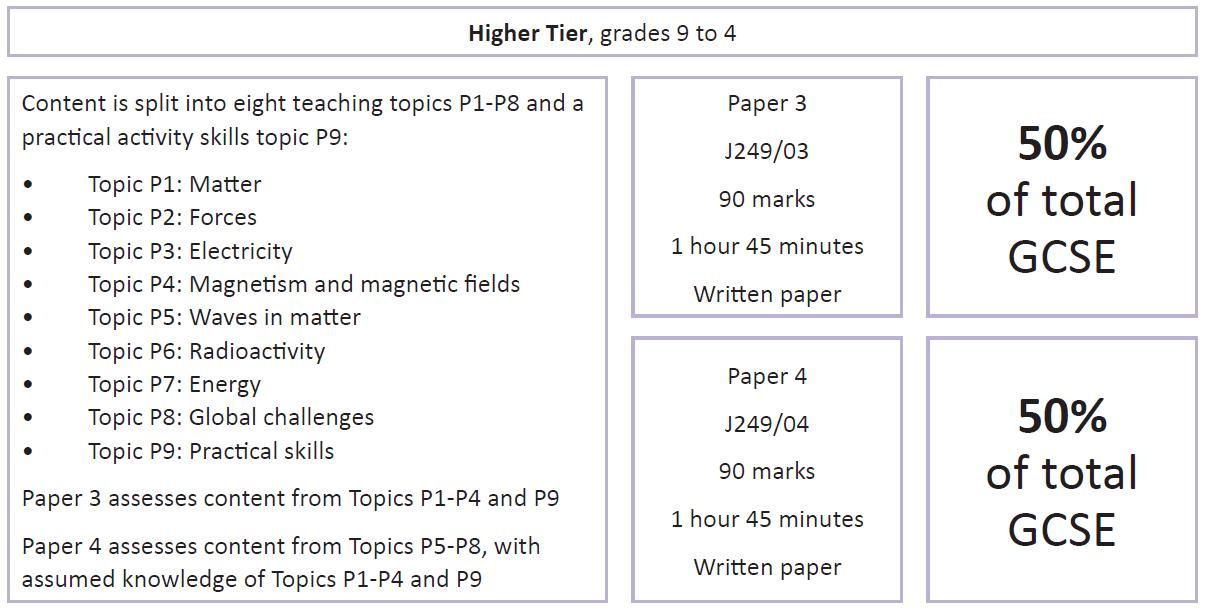

GCSE Chemistry
GCSE Physics

GCSE Religious Studies
Exam Board: AQA
Course Content
If you enjoy active discussions, considering different opinions and can argue your point of view, but also see and respect the views of others, then religious studies will present an interesting, enjoyable (and at times mind-blowing!) challenge.
You will study the following two units:
Study of Religions
• Beliefs, teachings and practices from two religions – Christianity and Islam
Thematic studies
• Relationships and families
• Religion and life
• Religion, peace and conflict
• Religion, crime and punishment
Assessment Procedure
100% External Examination. Two 1 hour and 45 minutes written exams.
Opportunities at CEC and beyond...
To experience a broad and interesting perspective of some of the key aspects of various lifeissues. The chance to develop the skills of analysis and debate and look at issues that occur around the world. This course is an excellent step towards a college course in any reflective, thoughtful subject including A Level philosophy.
Level 1 and 2 Cambridge National Course in Health and Social Care
Exam Board: OCR
Course Content and Assessment Procedures
The course will provide learners with knowledge, transferable skills and tools to improve their learning in other subjects with the aim of enhancing their employability when they leave education, contributing to both personal development and future economic well-being.
Students will cover two mandatory units and one optional unit. Mandatory (Compulsory) units (RO32 and RO33*)
Unit R032: Principles of care in health and social care settings (40%)
In this unit you will learn about the importance of the rights of service users, person-centred values and how to apply them. You will also learn about the importance of effective communication skills when providing care and support for service users in health and social care settings and the procedures and measures used to protect individuals such as safeguarding, hygiene and security.
1 hour 15 mins written paper, OCR set and marked
Optional unit (currently RO34*)
Unit R034: Creative and therapeutic activities (30%)
Unit R033: Supporting individuals through life events (30%)
In this unit you will learn about life stages and the factors that affect them. You will understand expected and unexpected life events and the impact they will have on physical, social/emotional, and socio-economic aspects in an individual’s life.
You will research the service providers and practitioners that can support individuals, recommend support, and justify how this will meet the needs of a specific individual
10-12 hours of ongoing non-examined assessment (NEA)
In this unit you will learn about a range of creative activities and therapies that are available in health, and social care settings and understand the physical, intellectual, emotional and social benefits of these. You will learn to plan and deliver a creative activity with an individual or group and evaluate your planning and delivery
10-12 hours of non-examined internal assessment (NEA)
Opportunities at CEC and beyond...
Topic Area 1: Therapies and their benefits
Topic Area 2: Creative activities and their benefits
Topic Area 3: Plan and creative activity for individuals or groups in a health or social care setting
Topic Area 4: Deliver a creative activity and evaluate your own performance
These skills will help you progress onto further study in the health and social care sector. This may be Level 3 vocational qualifications, such as the Cambridge Technical in Health and Social Care, A levels in psychology, biology or sociology and the following apprenticeships: • Adult care worker • Allied Health Profession Support • Health and Social Care • Healthcare science assistant • Maternity and Paediatric Support.
It is anticipated that this qualification will also enable you to progress onto a T-Level, such as Health and Healthcare Science, (when/where they are available).
Level 1 and 2 Cambridge National Information Technologies
Exam Board: OCR
Course Content
Cambridge National in IT will inspire and equip you with the confidence to use skills that are relevant to the IT sector. As a vocational qualification, equivalent in value to a GCSE, it contains both practical and theoretical elements. It covers the use of IT in the digital world, Internet of Everything, data manipulation, spreadsheets, human-computer interface (HCI) and augmented reality. You will learn how to create complex spreadsheet solutions to meet requirements and to create an augmented reality model prototype to be tested and reviewed.
Assessment Procedure
There are two internally assessed tasks (NEAs) and one final exam:
• Data manipulation using spreadsheets (NEA)
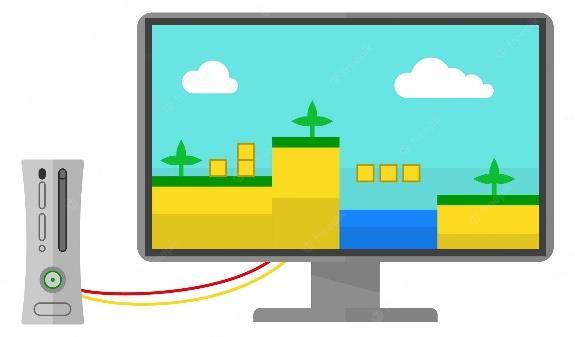
• Using augmented reality to present information (NEA)
• IT in the Digital World (Exam)
Opportunities at CEC and beyond...

By developing applied knowledge and practical skills, this course will help give you the opportunity to progress on to A Levels, a Cambridge Technical in Information Technologies, an apprenticeship or University. Information Technology is constantly evolving, and new jobs are developing all the time – you could work for tech giants or create your own products. So much is possible. You’ll develop a range of skills to help you succeed not only in the workplace but in other subjects too. These skills include:
No matter what you progress on to – the skills you’ll learn from a Cambridge National will prepare you for the future.
Questions I need to ask…
Discuss with parents and write any questions you may have for the teachers of any subjects that interest you. This can remind you when attending subject presentations, alternatively your tutors and subject teachers can support you in finding out the answers.
Subject
GCSE English
GCSE Film Studies
GCSE Geography
Health and Social Care
GCSE Science
GCSE PE
GCSE Music Technology
GCSE Languages
GCSE Music
GCSE History
GCSE Art and Design
GCSE Design Technology
GCSE Food Preparation and Nutrition
Information Technology
GCSE Business
GCSE Computer Science
https://youtu.be/fXxJ7vDa-XI
https://youtu.be/LJA4kiJmeoc
https://youtu.be/pVVqhpPReB4
https://youtu.be/aDBBo0VrXaw
https://youtu.be/20FdupDsVrI
https://youtu.be/Wc4nCb565GI
https://youtu.be/U18LFLfwnbQ
https://youtu.be/2oMVcXB0OMA
https://youtu.be/VNSLu0k8Nng
https://youtu.be/bEjvI71EY6M
https://youtu.be/mfkX1slEMAY
https://youtu.be/if8R844fydg
https://youtu.be/l7oecsSYUq4
https://youtu.be/PxQWnpWb1TI
https://youtu.be/GXIrR2O3FZw
https://youtu.be/nktxgn9q2qY
Subject Leader Email Addresses
GCSE Triple Science cmussell@cowesec.org
GCSE Computer Science jlewis@cowesec.org
GCSE Business jgibson@cowesec.org
GCSE Art & Design awright@cowesec.org
GCSE Design Technology agreen@cowesec.org
GCSE Drama estannard@cowesec.org
GCSE French and Spanish lmills@cowesec.org
GCSE Film Studies estannard@cowesec.org
GCSE Food Preparation and Nutrition agreen@cowesec.org
GCSE Geography kwiltshire@cowesec.org
Cambridge Nationals Level 1/Level 2 Health and Social Care mvidovic@cowesec.org
GCSE History nwiltshire@cowesec.org
Cambridge Nationals Level 1/Level 2 Information Technology jlewis@cowesec.org
GCSE Music dbrihmani@cowesec.org
GCSE Physical Education mvidovic@cowesec.org
GCSE Religious Studies lchurms@cowesec.org


































